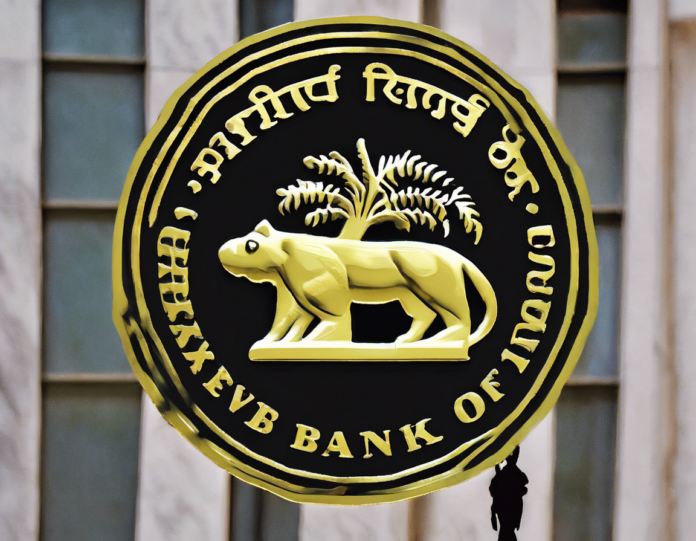The Reserve Bank of India (RBI) plays a critical role in regulating the financial markets in India, with a particular focus on fostering stability and growth in the currency derivatives market. One of the key instruments in this market is Exchange Traded Currency Derivatives (ETCDs). In this article, we will delve into the world of ETCDs, understanding their significance, how they function, and the regulations set by RBI to govern them.
Understanding Exchange Traded Currency Derivatives (ETCDs)
Exchange Traded Currency Derivatives are financial contracts that derive their value from an underlying currency exchange rate. These derivatives are traded on recognized stock exchanges, providing a regulated platform for participants to hedge against currency risks or speculate on future currency movements. The most common types of ETCDs include currency futures and options.
Currency Futures
- Currency futures are standardized contracts to buy or sell a specified amount of a particular currency at a predetermined price on a specified future date.
- These contracts are traded on recognized exchanges, such as the National Stock Exchange (NSE) or the Bombay Stock Exchange (BSE), ensuring transparency and liquidity in the market.
- Currency futures allow participants to hedge against foreign exchange risk arising from fluctuations in currency exchange rates.
Currency Options
- Currency options, on the other hand, provide the holder with the right (but not the obligation) to buy or sell a specific currency at a predetermined exchange rate within a specified timeframe.
- Options offer more flexibility compared to futures, as the holder can choose whether or not to exercise the contract based on the market conditions.
Significance of ETCDs
Exchange Traded Currency Derivatives play a crucial role in the financial markets for several reasons:
-
Risk Management: Businesses engaged in international trade use ETCDs to hedge against currency fluctuations, thereby reducing their exposure to exchange rate risks.
-
Speculation: Investors and traders use ETCDs to speculate on currency movements, aiming to profit from fluctuations in exchange rates.
-
Liquidity: Exchange-traded markets provide high liquidity, allowing participants to enter and exit positions easily, unlike over-the-counter (OTC) markets.
RBI Regulations on ETCDs
The RBI regulates the ETCD market in India to ensure transparency, stability, and investor protection. Some key regulations include:
-
Eligible Participants: Only entities permitted by RBI, such as banks, financial institutions, and retail investors meeting specific criteria, can participate in the ETCD market.
-
Position Limits: RBI sets position limits to prevent market manipulation and excessive risk-taking by participants.
-
Margin Requirements: Participants trading in ETCDs are required to maintain margin funds to cover potential losses, ensuring market integrity.
-
Reporting Requirements: Entities dealing in ETCDs need to report their positions and transactions regularly to regulatory authorities for monitoring and surveillance.
Benefits of Trading ETCDs
Trading in Exchange Traded Currency Derivatives offers several benefits for participants:
-
Risk Mitigation: ETCDs provide a mechanism to hedge against currency risks, protecting businesses from adverse exchange rate movements.
-
Price Discovery: The transparent and liquid nature of exchange-traded markets facilitates efficient price discovery, reflecting true market sentiments.
-
Speculative Opportunities: Traders can capitalize on short-term movements in currency markets through ETCDs, potentially generating profits.
Frequently Asked Questions (FAQs) about RBI's Exchange Traded Currency Derivatives
1. Who can participate in the ETCD market regulated by RBI?
- Entities such as banks, financial institutions, corporations, and retail investors meeting RBI's eligibility criteria can participate in the ETCD market.
2. How are currency futures different from currency options in the ETCD market?
- Currency futures are obligations to buy or sell a currency at a future date, while currency options provide the right (but not the obligation) to do so within a specified timeframe.
3. What role does RBI play in regulating the ETCD market in India?
- RBI sets regulations on participant eligibility, position limits, margin requirements, and reporting standards to ensure a transparent and stable ETCD market.
4. How do ETCDs help businesses engaged in international trade?
- Businesses can use ETCDs to hedge against currency fluctuations, reducing their exposure to exchange rate risks and ensuring more predictable cash flows.
5. What are the key benefits of trading in Exchange Traded Currency Derivatives?
- The benefits include risk mitigation, efficient price discovery, speculative opportunities, and high liquidity in the market.
In conclusion, Exchange Traded Currency Derivatives serve as vital instruments in managing currency risks, facilitating price discovery, and providing trading opportunities in the financial markets. With RBI's regulatory oversight, the ETCD market in India continues to evolve, offering participants a well-regulated platform to engage in currency derivatives trading effectively.


Recent comments